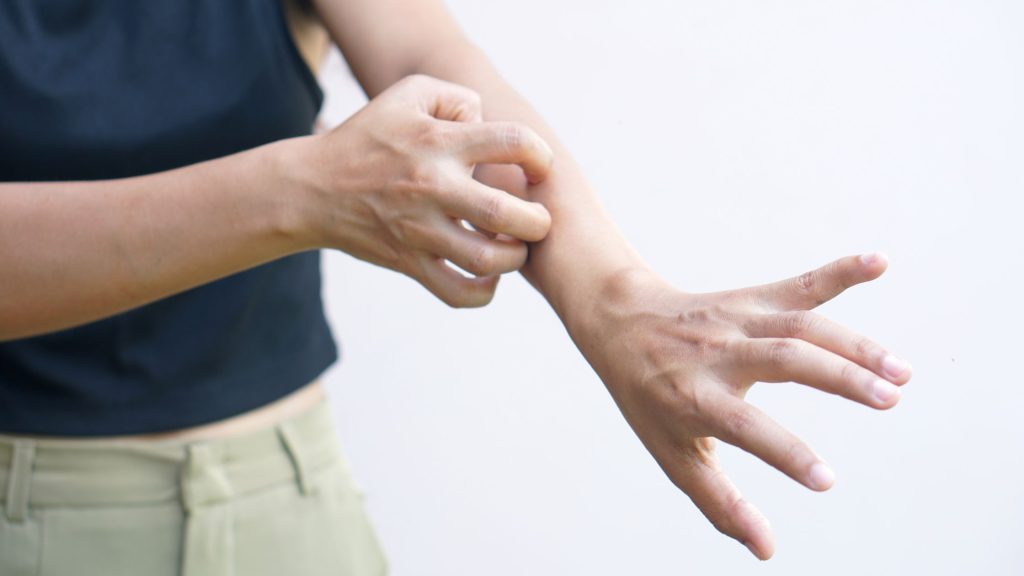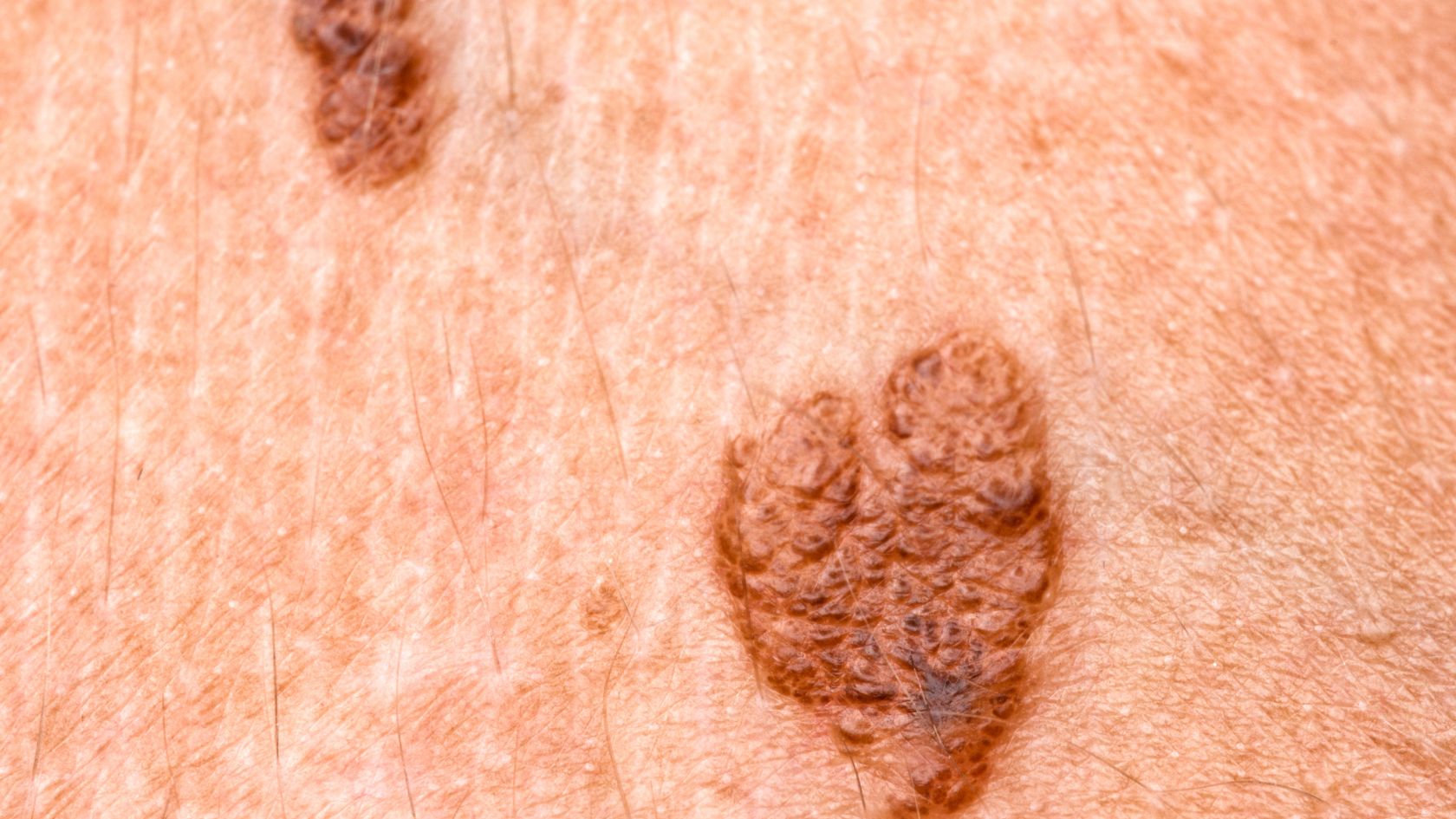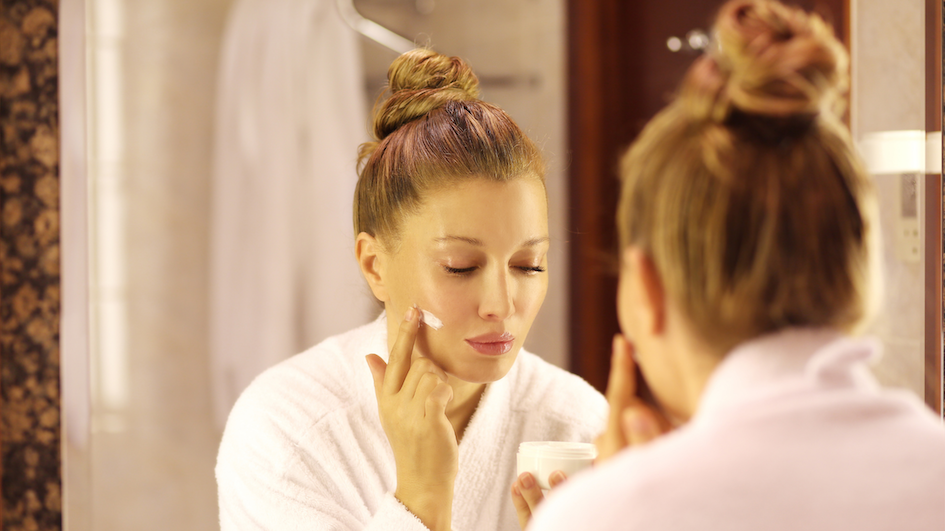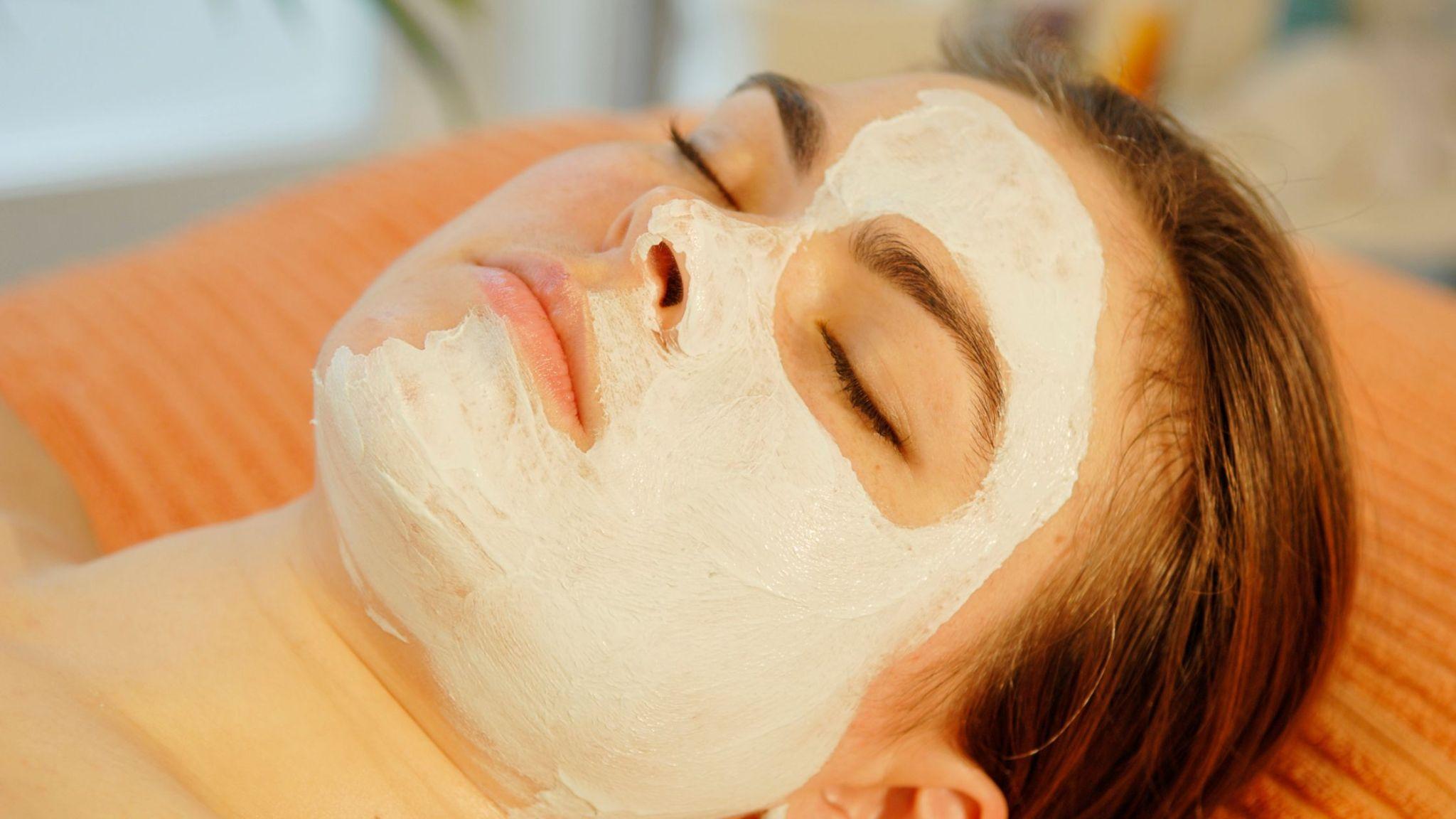What is Skin Sensitivity?
In simple words, it is a heightened reaction of your skin. It mainly occurs when the sensory nerve endings in the upper layers of your skin become irritated. The cause could be something as simple as your skincare products. When these irritants keep interacting with your skin, your skin’s natural barrier gets weakened or compromised. This ultimately leads to symptoms such as redness or itching.
Sensitive skin itself is not a medical diagnosis. But it can be a sign of an underlying issue. In fact, there are certain skin conditions that can result in sensitivity. We will take a look at these conditions in our next section. But the key point is you need to identify the root cause of sensitivity to find relief.
What Causes Skin Sensitivity?
Skin sensitivity can arise from various factors, including underlying health conditions and environmental influences. Conditions such as eczema, rosacea, and allergic contact dermatitis can compromise your skin’s protective barrier. This invariably leads to increased sensitivity.
Environmental elements like extreme temperatures or low humidity can also irritate your skin. This will exacerbate your sensitivity issues.
Additionally, lifestyle choices and personal care products play a role in skin sensitivity. For instance, overwashing or using harsh soaps can lead to skin sensitivity due to dryness. Similarly, certain ingredients in cosmetics, such as fragrances and preservatives, can trigger allergic reactions in sensitive individuals. Stress and lack of sleep can also weaken your skin’s barrier function. It will make it more susceptible to sensitivity.
Tips for Taking Care of Sensitive Skin
Here are some handy tips you can follow at home to ensure that you keep skin sensitivity at bay –
Don’t Overwash or Over-Exfoliate
Agreed that cleansing and exfoliation are essential for healthy skin. But the key is moderation. Washing can remove dirt and oil from your skin, while exfoliation clears dead skin cells. However, when you do them too often, you end up stripping your skin’s natural oils. This leads to dryness and, ultimately, sensitivity. Always opt for a gentle cleanser and a liquid exfoliant instead of harsh scrubs.
Keep Your Routine Simple
When it comes to avoiding skin sensitivity, simplicity should be your mantra. Stay away from products with added fragrances and preservatives. There is a high probability that they will increase the likelihood of skin reactions. Also, opt for dye-free, paraben-free, and hypoallergenic products. They might be more expensive and difficult to get, but your skin will thank you later.
Patch Test New Products
You must understand that even products you’ve used before can cause reactions over time. Why? Because manufacturers might sometimes alter ingredients without obvious packaging changes. So, always test for sensitivity by doing a patch test. Apply a small amount of the product to a hidden area. For example – the inside of your arm. If no redness or irritation occurs after several days of repeated use, the product is likely safe for your skin. For more complex and advanced products, your dermatologist can conduct patch testing for common allergens.
Limit Hot Showers
Hot water can strip the skin of moisture. This means your skin will be more prone to dryness and irritation. So always stick to lukewarm water (or room temperature if possible) for cleansing. More importantly, keep showers brief. Five to ten minutes should be sufficient for most people.
Stay Hydrated
This is a basic rule. When you drink plenty of water, your body is better equipped to flush out toxins. It will keep your skin hydrated from within. Apart from this, try to limit caffeine and alcohol. Because they are the top contributors to dehydration.
Protect Your Skin from the Sun
Sun exposure can increase skin sensitivity. So always wear protective clothing and a wide-brimmed hat when outdoors. Choose a sunscreen specifically formulated for sensitive skin. It will be ideal if it is completely fragrance-free.
Treatment for Skin Sensitivity
If you experience persistent skin sensitivity, consult a dermatologist. It is the best course of action. A dermatologist will first assess your symptoms and understand your medical history to determine the underlying cause. They may perform a patch test to identify allergic reactions or other diagnostic tests to rule out conditions like eczema or rosacea. Based on the diagnosis, they may recommend a customized skincare routine. They could even prescribe medicated creams or suggest lifestyle modifications to minimize irritation. In severe cases, advanced treatments may be advised to restore skin health and reduce sensitivity.
If you are in Bangalore or its vicinity, you can consult Dr Renu for personalized treatment for skin sensitivity. Book an appointment now.












